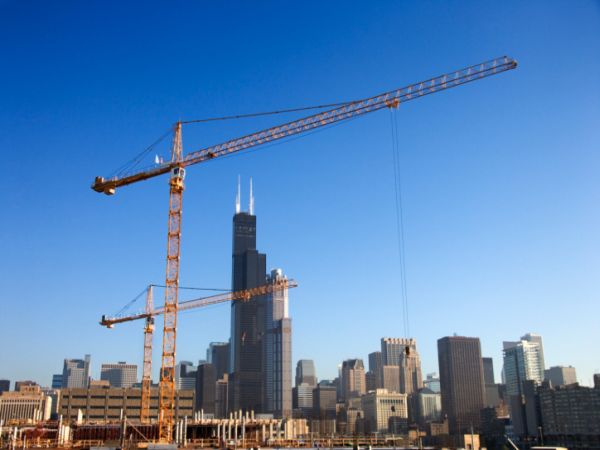In this article, Rajan S pursuing M.A, in Business Law from NUJS, Kolkata discusses How will RERA, 2017 affect Working Capital requirements by Builders.
The Real Estate (Regulation and Development) Act, 2016 was established and passed by the Parliament and came into force from May 1, 2016 with the notifications to be mentioned by all States and Union territories. Further, remaining provisions came into force from May 1, 2017, which was progressively notified and implemented by the state governments. A State-level Tribunal will regulate and monitor all the transactions in residential and commercial projects.
The Salient Features of this act majorly protect the Buyers and provide Transparent Transactions
- All Real Estate Projects and Real Estate Agents have to register with RERA including their on-going projects.
- No Sale can be made without registration.
- Project shall have certification through Affidavit for all Legal title and free from encumbrances.
- All the units have to be sold mentioning the carpet area at the time of Project delivery.
- Developer is liable to rectify any structural or workmanship defect within 5 years without any additional cost to buyer.
- Penal provisions for both promoter and buyer, in case of default, maximum 10% of the project cost or 3 year imprisonment or both.
- Promoter to upload the details of the project in RERA website.
Following features will affect the Working Capital Requirements by Builders
Challenging Provisions 1
No promoter shall advertise, market, book or offer or invite persons for sale in any manner in real estate without registration of the project under REA.
In general, most of the small-scale promoters are raising the funds from the market through pre-launches or some time with their broad idea of the project. This time-honored practice of raising funds is not possible now. As the project registration requires the sanctioned plan, layout and specifications of the proposed project from the competent authority. In addition, the registration requires a declaration, supported by an affidavit to establish the legal title of the land, encumbrances, deposit of seventy percent project fund as an allotment in separate account.
However, the requirement is to safeguard the buyer capital and seems reasonable, however in practical to get rid of all these clearances promoters to depend on the relevant authorities and government departments. This is one of the major causes for delay, which directly affects the commencement as well as promoting the project to seek for funding from the market.
So the earlier way of raising fund from the public by privately marketing properties in projects through informal investors and broker channels is become impossible for builders. In other hand, due to poor reputation over real estate business sector, banks are becoming reluctant to sanction the loans and making stringent regulations to avoid the bad loans.
Challenging Provisions 2
Seventy percent of the project cost collected from the allottees shall be deposited in a separate account to cover the risk of negative cash flow during construction;
In project financing, the cash flow is key role and the project does not required bulk finance during initial and development stage. The flow of cash becomes critical as the project progresses only upto 50 – 60% or in some case it will remain critical until the completion.
Hence, this provision is one of the biggest hurdles for the developers as they have to maintain an escrow account and keep bulky amount during initial stage itself, this will impact the cash flow and builders has to invest more finance to maintain the positive flow of cash to complete the project on time.
As the deposited fund is for specific project they cannot withdraw or divert or utilize the deposited funds of one project to any other project. Hence, this provision does not allow the space to utilize the idle funds and thus obstruct the growth of business as developer to invest more borrowed capital at highest cost to complete the project.
Challenging Provisions 3
Developer cannot receive a sum more than 10% of the total cost of apartment from the buyer as an advance payment.
From this provision, the funding option of developers from buyer is limited to only 10%. Therefore, the developer has to find the other way of funding which are very costly in reality.
Challenging Provisions 4
The Buyer has to pay for the Carpet area i.e. actual useable floor area of an apartment and not for built-up area.
This provision makes unambiguous state to buyer that what he is paying for and transparent, however built-up areas have also to be developed by the developer and it cannot be claimed from the customer. This creates an eventual financial burden to the developer on the carpet area itself.
In addition to the aforesaid challenging provisions, developer has to submit the track record of their projects while registration for any new project. The record includes their financial record and any poor fund management in past projects will affect the registration process.
Finally, the challenges are mostly with small-scale real estate developers or poorly-finance builder with no tangible and established financial discipline to raise formal capital for their project. This RERA Act brings back or improves the developer to well-capitalized agent.
Reference
- The Real Estate (Regulation and Development) Act, 2016, published by Ministry of Law and Justice dated 26th Nov 2016.
- The Government of Tamil Nadu Notification on RERA “Real Estate Rules 2017” published on 22.06.2017.
 Serato DJ Crack 2025Serato DJ PRO Crack
Serato DJ Crack 2025Serato DJ PRO Crack









 Allow notifications
Allow notifications


